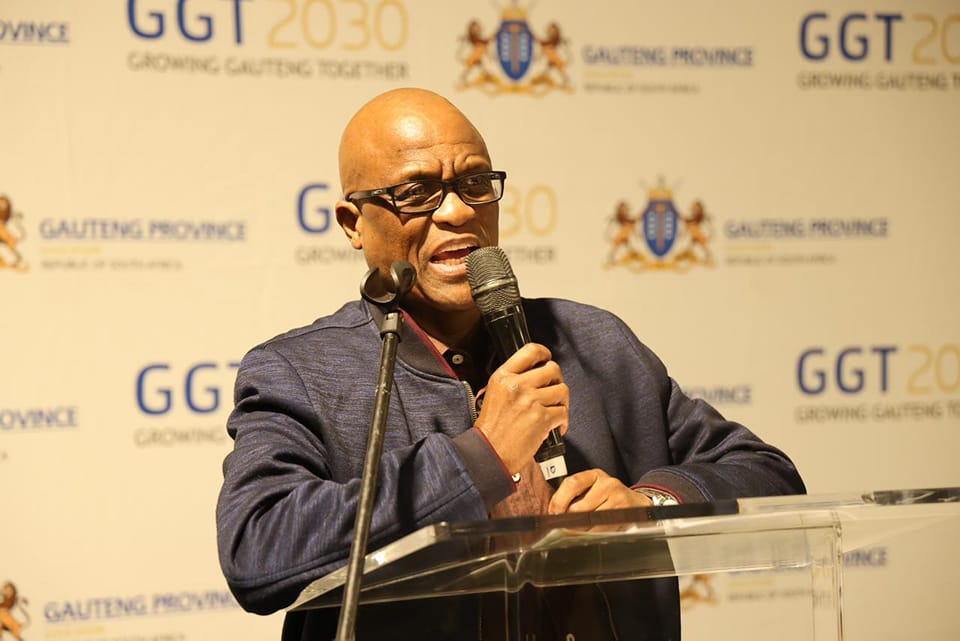On a mission to improve and reshape the landscape of education, the Gauteng Department of Education working jointly with Matthew Goniwe School of Leadership and Governance (MGSLG) has established Schools of Specialisation in Gauteng Wide to alleviate the skills shortages and high rate of unemployment. This is one of the pivotal programmes meant to support, boost, and accelerate the enhancement and modernisation of the South African economy, as it provides learners with knowledge and skills that are relevant and in demand in today’s society. Schools of Specialisation are also meant to bridge the gap between grade 12 and further education while leveraging school-private sector partnerships to expand learner and teacher support. These specialised schools offer a highly specialized curriculum and target the top-performing schools across the Gauteng Province.
As the Gauteng Province is segregated into five economic corridors (1. Northern Corridor – located in Tshwane Municipality with a focus related to automotive research and innovation; 2. Central Corridor- located in the City of Johannesburg Municipality with a focus on finance and services;3. Western Corridor-located in West Rand Municipality with a focus on Agro-processing, tourism and logistics; 4 Southern Corridor- located in Sedibeng Municipality with a focus on tourism and entertainment, Agro-Processing and logistics; 5. Also Eastern Corridor- located in Ekurhuleni Municipality with an economic focus on manufacturing, transport and logistics) each economic corridor has been provided with Schools of Specialisation that are aligned and relevant to the economic resources it possesses as they support and work towards that municipality’s economic focus.
Therefore, to make this imperative strategy a success MGSLG has a responsibility to support it by equipping all stakeholders (SGBs, HoDs, Principals, School Financial Officers, SOS Champions etc) that are in charge in these specialised schools with skills and knowledge required.
On the 17th of February 2024 MGSLG trained SOS stakeholders from across Gauteng Province on School Financial Sustainability. As the budget and needs of the Schools of Specialisation differ as compared to ordinary schools, the intent of the training is to equip stakeholders with crucial tools and insights required to navigate the intricate financial landscape of specialised educational institutions. The training largely covered the following topics: the role of social responsibility in the SOS; the value of financial sustainability in the SOS; the role of ethics and good governance in finance; the importance of financial stability in SOS; the role of budget in ensuring financial sustainability; describe the business plans’ function in a SOS as per activities of the business plan
MGSLG Director in the School Governance Division: Dr Dempsey Noge articulated the roles of MGSLG on the SOS and the purpose of training SOS’s stakeholders on the School’s Financial Sustainability he said ‘’Thus far thirty-two (32) Schools of Specialization have been launched during this administration across Gauteng Province. These Schools of Specialisation seek to nurture the development of top talent in South Africa across five key disciplines, producing the country’s future generation of leaders by nurturing the system’s most distinctive learners.
The roles of MGSLG in this programme are to: ensure compliance in terms of the composition and functionality of the governance structures/committees; support and prepare the schools and SGB before and after the official launch of the SOS by the MEC; capacitate the SGB on a wide range of programmes, such as the development and review of school policies, development implementation of the SDP/SIP, recruitment and selection; deliver specialised training programmes as per their needs – programmes such as financial sustainability, development of business plans, and fostering partnerships; and also to deploy mentors and coaches to support SOS – to mentor and coach SMTs and SGBs on achieving their mandate.
The aim of MGSLG training SOS stakeholders on the School Financial Sustainability Programme is that this programme stands as a critical tool in empowering SGBs to fulfil their roles effectively, steering “dysfunctional” schools toward success while aiding management in maintaining high learner outcomes and functional institutions. School Governing Body (SGB) members need to be equipped with the crucial tools and insights needed to navigate the intricate financial landscape of specialized educational institutions.
The aim is to inculcate a better understanding of the role that money and values play in building a successful school community. Knowledge in these areas will equip SGB members to make decisions that keep their schools accessible, equitable, accountable, and able to continue serving learners and communities for years to come.’’
Written by: Bayanda Magoswana
.

